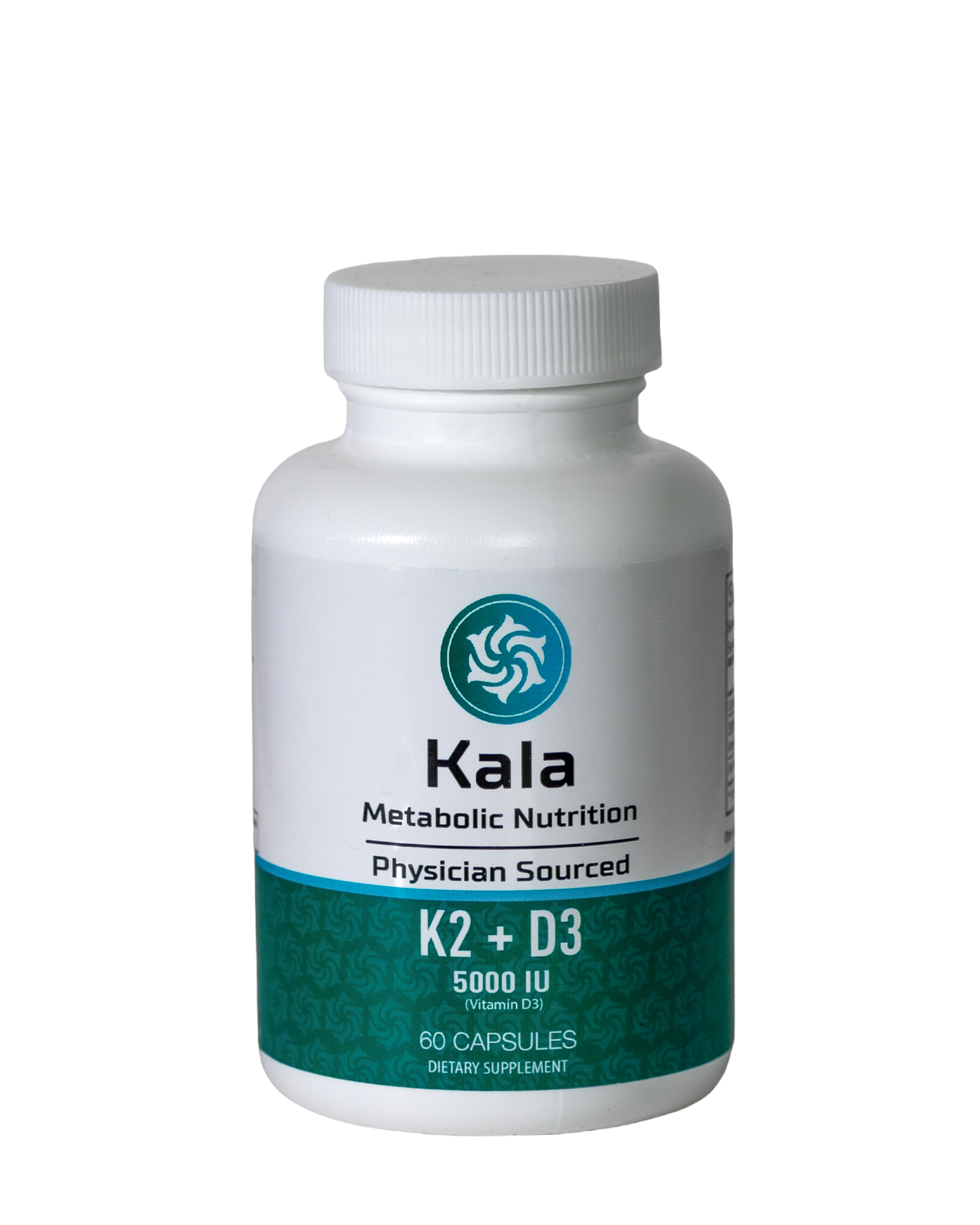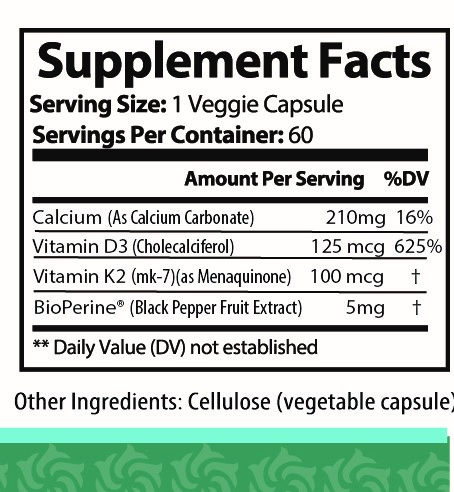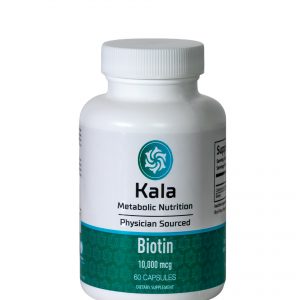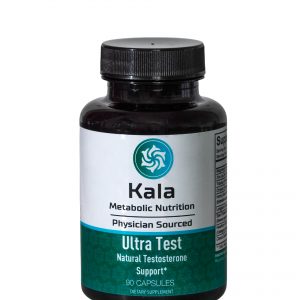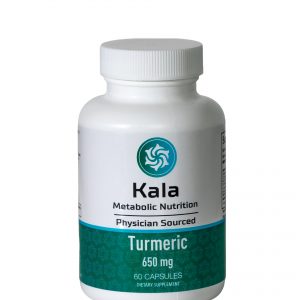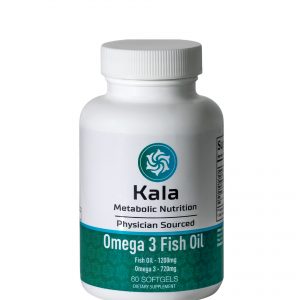Description
Vitamins D3 and K2 are both fat-soluble vitamins with similar structures that provide many benefits to the body. Vitamin D is needed at every level for whole body health. In fact, every single type of tissue in your body has receptors for Vitamin D. Your bones, heart, brain, muscles, immune system, you name it, all require sufficient Vitamin D to function optimally. Vitamin D is also the only vitamin that also functions as a hormone in the body, making it even more important to be sure you are not deficient or insufficient in this all important micronutrient. Vitamin D facilitates calcium absorption from the GI tract into the bloodstream and thus plays an important role in maintaining bone density. Once Calcium is absorbed, Vitamin K helps transport calcium from the bloodstream into the bone. Together these two vitamins help maintain appropriate calcium skeletal distribution. Vitamins D3 and K2 help to activate the carboxylation of osteocalcin, which properly supports a strong protein matrix for bone mineralization. Calcium is critical for optimal bone density as well as normal growth. Vitamin K2 helps maintain both cardiovascular and bone health by ferrying excess calcium from the bloodstream into the bone where it is needed. This also prevents calcium from building up in soft tissues and arteries thereby supporting the maintenance of cardiovascular health as well. Studies have shown that vitamin K2 is the more bioavailable form of the nutrient and influences bone building more powerfully than K1. Studies have shown that both Vitamins D3 and K2 are associated with a stronger immune function and help to balance the inflammatory response.
Benefits:
Vit K2 helps Vit D3 absorption in the gut
Regulation of calcium transport
Aids bone growth
Supports bone mineralization
Boosts immune system
Supports control of cell proliferation
Aids the Induction of apoptosis
Balances glucose and cholesterol levels
Supports the health and elasticity of arterial walls
Lower risks of developing cancer.
Benefits seen by Vitamin D ( 25-OH-D) levels in ng/ml
0-10 = very deficient, may see muscle weakness, hearing problems, pain, skin problems, tiredness, weak bones, fractures and depression
10-30 = considered deficient, may be asymptomatic.
30-50 = insufficient, but starts improving musculoskeletal function
50-70 = good levels, starts promoting control of glucose and cholesterol
70-100 = optimum, boosts immune system and reduces risk of cardiovascular disease and cancer
100-125 = excess levels may give loss of appetite, nausea and vomiting
Over 125 = toxic levels may give excessive thirst, weakness, fatigue, nervousness and high blood pressure

